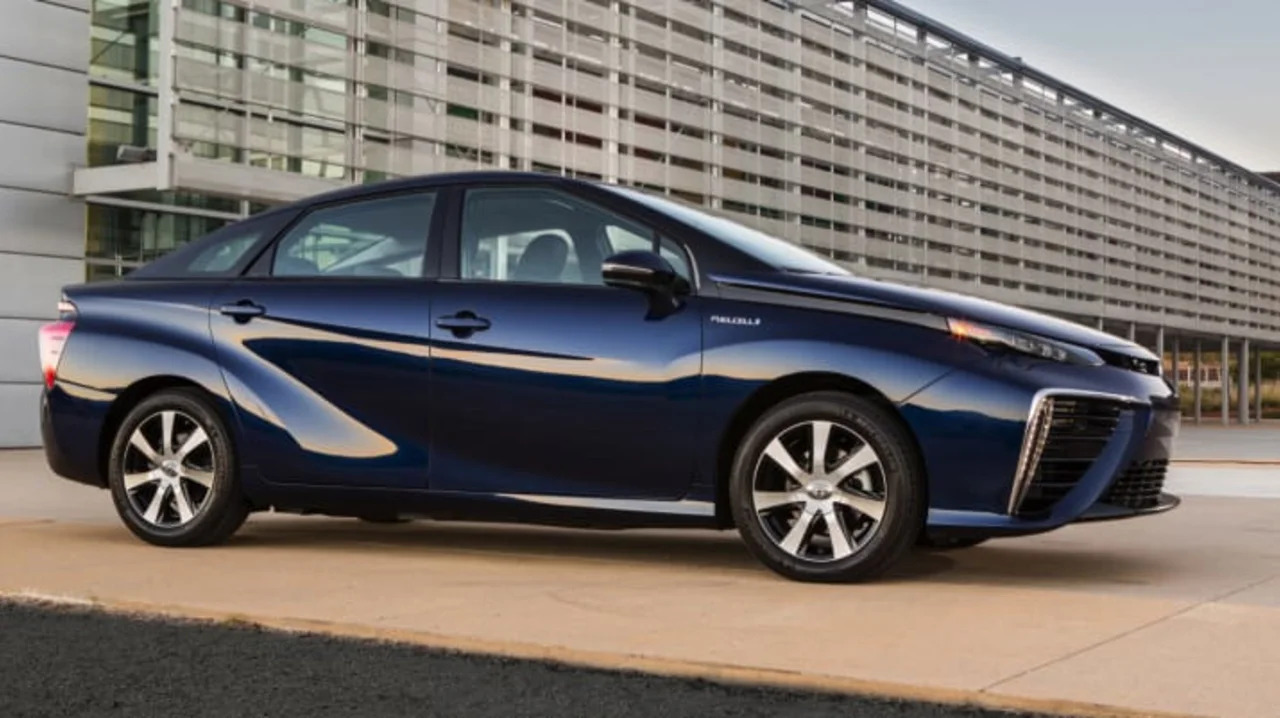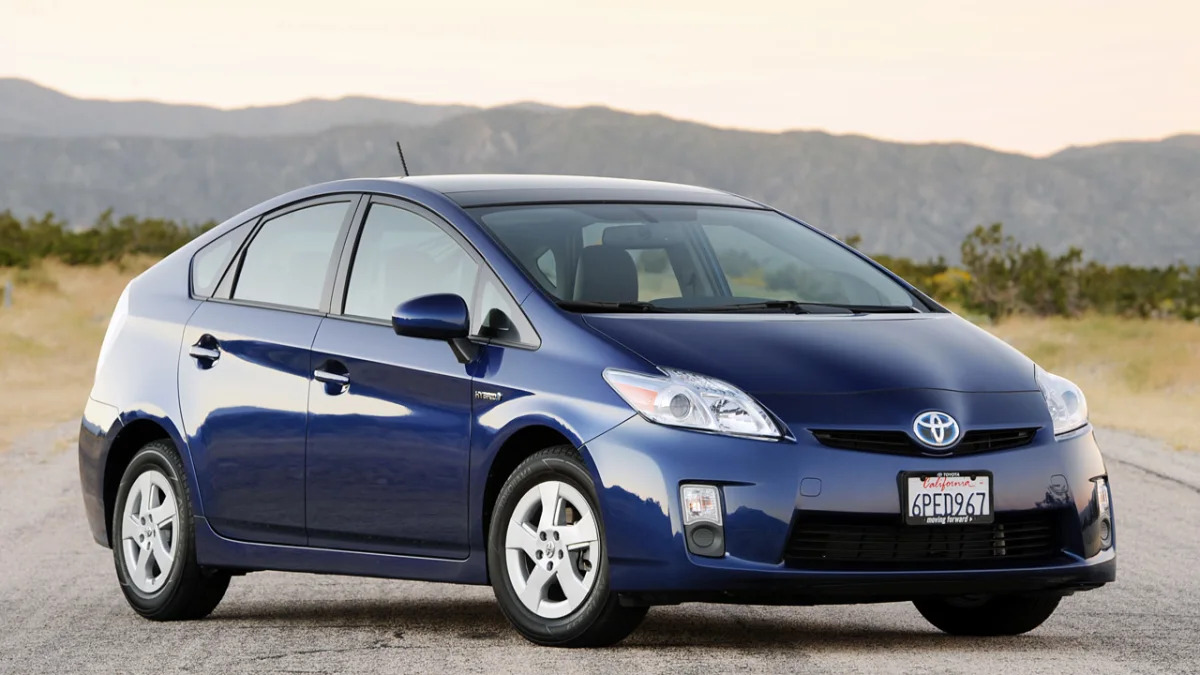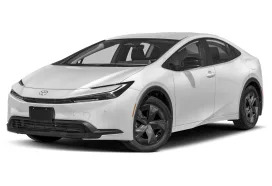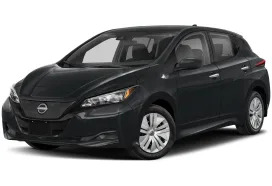Toyota remains incredibly proud of its green halo car, the Prius. On the company website, it calls the gas-electric car, "The hybrid that started it all." Chances are, if someone tells you to think of a hybrid car today, your first thought is going to be the Prius. Now a cultural icon, the Prius changed a lot of attitudes about what an efficient car is able to achieve.
But the car is aging, despite numerous refreshes and model tweaks over the years, and sales dropped 11.5 percent last year. It's taken Toyota 25 years of ups and downs to get the Prius to where it is today, and we started wondering if that's too long for the car to remain viable in an era of 40+ mile-per-gallon non-hybrid cars and a plethora of plug-in competitors for the green car crown (we're not the only ones).
Plus, Toyota is rapidly shifting its green focus away from the Prius and towards the hydrogen-powered Mirai fuel cell car. But if you ask Toyota representatives if the Prius is still a vital car in 2015 – and we did – you'll find that there's still a lot of love for the car that went before.
For example, Geri Yoza is a Toyota national manager who spent years traveling all across the US teaching people about the Prius. The veteran of countless customer education sessions told AutoblogGreen that it took a long time for the Prius to "cross the technology chasm," and that it wasn't until about a decade after launch that the car became a common sight outside of the initial popularity hotspots. "It takes a while for people to become confident in the technology, to understand that it's been proven," she said. Now that the hybrid is ensconced in the public mind, it's time for the next step. "I think the Prius, the whole idea 'to go before,' was to go before the Mirai."

Part of that precursor status is due to the fact that a lot of the Prius' powertrain technology has made the jump to the Mirai. When we asked Bob Carter, Toyota's senior vice president of automotive operations, if the Prius still matters, he had a clear answer: "My goodness, yes."
"We've been selling hybrids for 25 years," he said, "but when you go back, we had said that the Prius and hybrid technology were a bridge to the future and we were very clear that it's going to be a very long bridge. Essentially, and I'm not an engineer, the Mirai takes the technology from the Prius and takes the ICE engine out and puts a fuel cell stack in. [Hybrids are] a core technology for us and will continue as far into the future as I can see."
Satoshi Ogiso, the managing officer for Toyota Motor Corporation, was deeply involved in the Prius program and now works on the Mirai project. He told AutoblogGreen that the Prius remains "very important," because it continues to give customers powertrain options in the cars they want to drive. Premium innovation should come from Toyota's Lexus brand, he said, but "affordable high-tech innovation," should come from Toyota – and that means the Prius.
Former AutoblogGreen editor and current analyst for Navigant Research Sam Abuelsamid said that, "The Prius absolutely still matters. Even with the decline in sales in 2014, it remains by a wide margin the best-selling hybrid brand in the world. There are several factors that have come together in the past couple of years that contributed to the sales decline. The current Prius is at the end of its life cycle with a new generation expected to debut later this year, fuel prices in the US have declined, hurting efficiency-minded models like Prius and there is plenty of new competition from other HEV, PHEV and BEV models.
"That new competition means Prius has to become even more appealing to mainstream audiences, with more amenities, better driving dynamics and an affordable price point. I think the Prius V was a good addition to the lineup, but the Prius C might have been a step too far, too small and not any more efficient. The Prius PHEV also didn't add enough all-electric range or mileage to justify the cost premium."
Abuelsamid said that despite the Prius' role in introducing the Mirai, we shouldn't count the gas-electric hybrid out yet. "As for Mirai, it is getting Toyota's attention right now because fuel cells are the company's focus for the ZEV market and they need to sell them to meet the ZEV mandate in California and other states," Abuelsamid said. "Once the gen-IV Prius arrives, I'm sure we'll see a big marketing push for that car, especially if it offers a boost in mileage."
When you talk to Toyota representatives, you get the feeling they're already planning for the day 25 years from now when they can look back and view MIrai with the same lens that we use on the Prius today. Even as the automaker is getting ready for the shift to a hydrogen economy, Yoza knows that the Prius continues to expose people to some new-to-them technology, like a car with a big battery and an electric motor, and it does so in a safe way. "We did a very good job making sure we brought out a very reliable vehicle to market," she said, thinking back to hear years engaging with potential customers. The new Mirai, she added, has gone through the same sort of engineering stress tests in places like Yellowknife, NWT, Canada and Death Valley, CA so that when it arrives it'll be just as reliable as the Prius. Most people don't think twice about buying a Prius today, she said, and that's her challenge with the Mirai. She's been tapped to be repeat those endless hours of customer education sessions, just with fuel cells this time.













Sign in to post
Please sign in to leave a comment.
Continue